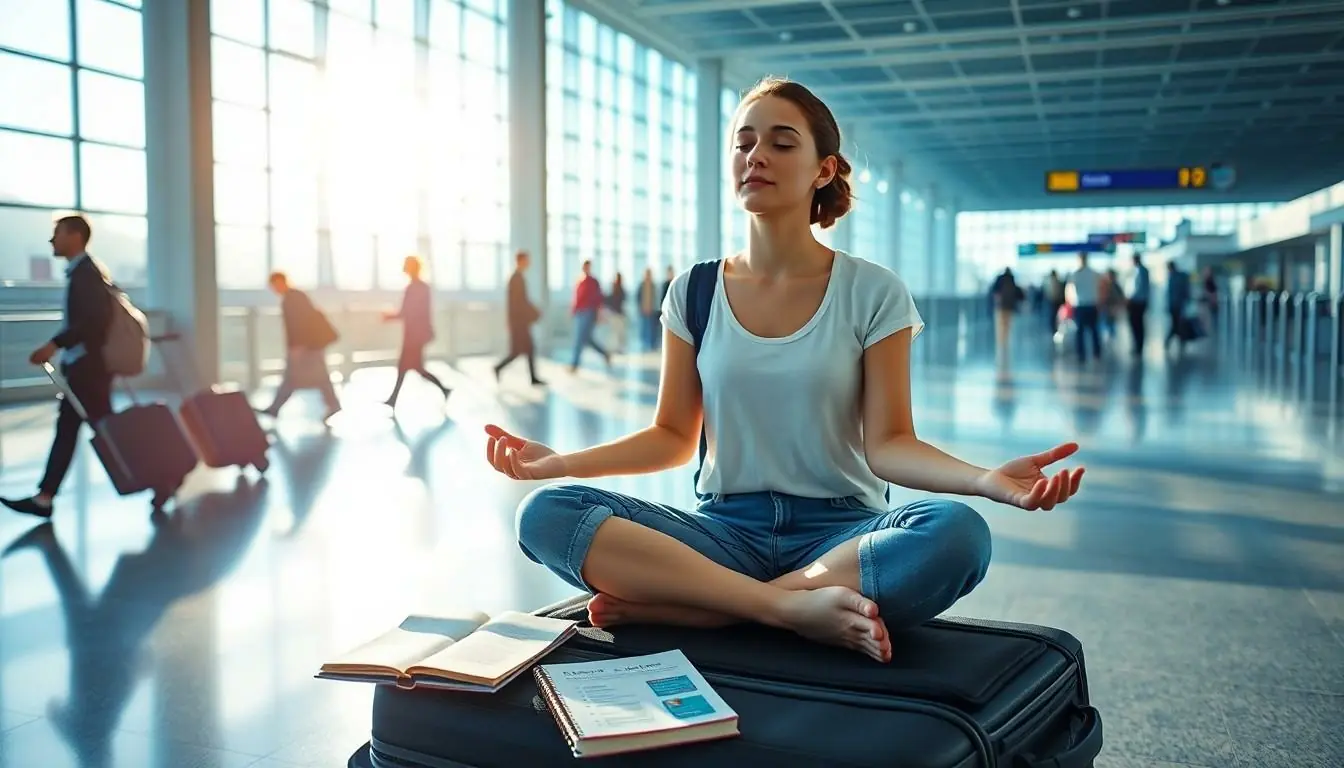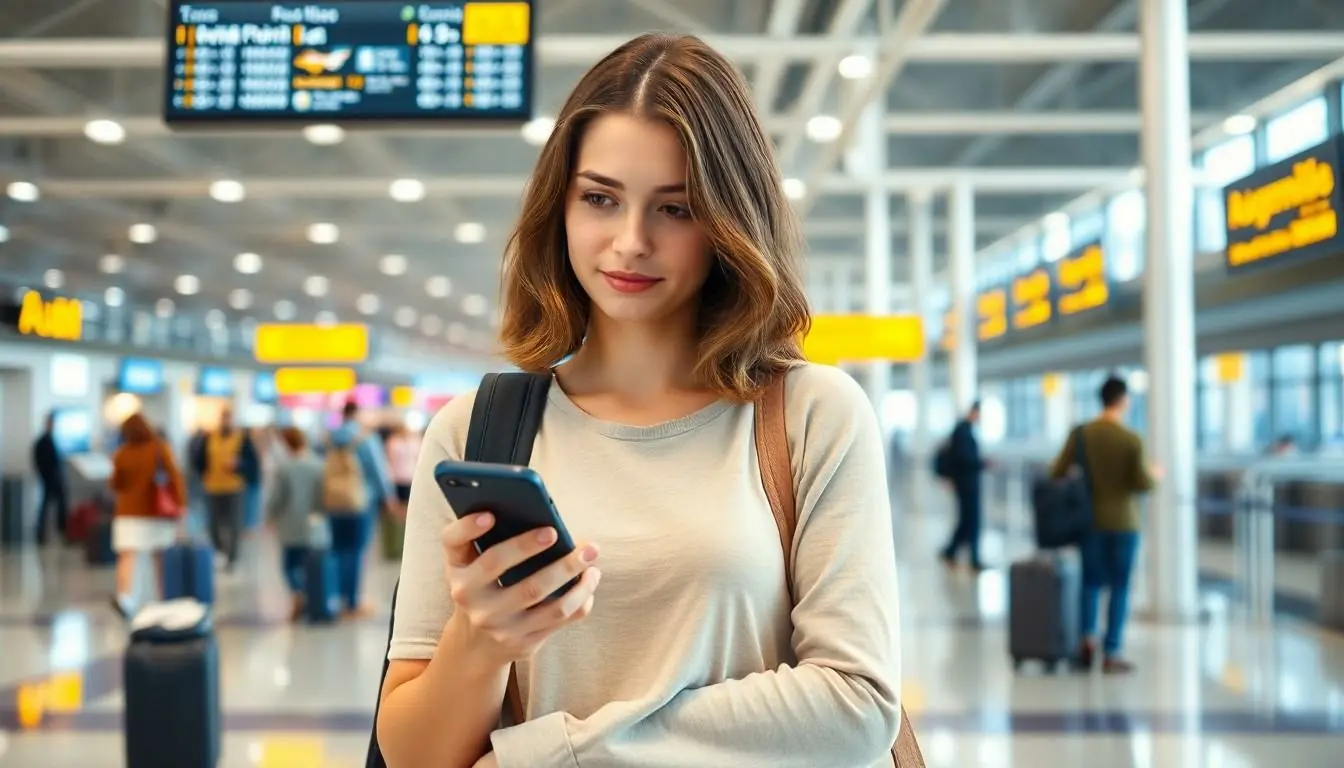Table of Contents
ToggleTraveling can feel like a thrilling adventure, but for many, it also comes with a side of anxiety that can turn excitement into dread. Whether it’s the fear of flying, getting lost in a new city, or the dreaded packing fiasco, anxiety can sneak up on even the most seasoned travelers. But fear not! There’s a treasure trove of tips and tricks to help conquer those travel jitters and turn anxiety into a mere bump in the road.
Imagine strolling through the streets of Paris or lounging on a beach in Bali without that pesky knot in your stomach. With a few simple strategies, anyone can transform their travel experience from a nail-biting ordeal to a relaxing escape. So grab your passport and a sense of humor, and let’s dive into some tried-and-true travel anxiety tips that’ll have you jet-setting with confidence.
Understanding Travel Anxiety
Travel anxiety commonly affects individuals regardless of experience level. Recognizing triggers and symptoms can help manage this condition effectively.
Common Triggers
Fear of flying often ranks as a leading trigger for travel anxiety. Long security lines can heighten stress, especially for those prone to anxiety. Unfamiliar destinations add uncertainty, making some feel overwhelmed. Concerns about missed connections contribute to heightened nervousness. Packing challenges can amplify worries about forgetting essential items. Each of these factors contributes to a sense of unease, even before the trip begins.
Symptoms of Travel Anxiety
Physical symptoms often manifest in response to travel anxiety. Rapid heartbeat frequently occurs when individuals anticipate upcoming trips. Feeling dizzy can accompany anxiety when considering various scenarios. Sweating may increase during stressful travel experiences. Behavioral signs like avoidance of travel plans often signal anxiety levels. Recognizing these symptoms aids individuals in addressing their concerns and adjusting for future travels.
Practical Travel Anxiety Tips

Travel anxiety affects many, even seasoned travelers. Employing effective strategies can enhance the journey.
Preparation Before Your Trip
Planning is crucial for reducing anxiety. Research destinations to become familiar with routes and local customs. Create a checklist to ensure essential items are packed. Having a well-organized itinerary can eliminate last-minute stress. Arriving early at the airport helps avoid rushing through security. Confirming reservations and tickets ahead of time provides peace of mind. Connecting with others who have traveled to the same location can also offer valuable insights. Being prepared allows travelers to focus on the adventure rather than potential pitfalls.
Mindfulness and Relaxation Techniques
Practicing mindfulness can effectively calm nerves before traveling. Deep breathing exercises perform well for instant relaxation. Visualization techniques also help by imagining a peaceful scene or a successful journey. Engaging in yoga stretches relieves tension in the body. Listening to calming music creates a soothing atmosphere. Journaling thoughts and feelings fosters emotional clarity. Staying present during travel moments diminishes anxiety triggers. Incorporating these techniques into the travel routine enhances the overall experience.
Coping Strategies During Travel
Travelers often encounter challenging situations that can trigger anxiety. Implementing effective coping strategies can significantly enhance the travel experience.
Staying Calm in Crowded Places
Navigating crowded airports or train stations can heighten feelings of anxiety. Utilizing noise-canceling headphones can reduce overwhelming sounds, while engaging with a favorite podcast or soothing music may create a calming atmosphere. Taking slow, deliberate breaths aids in managing sensations of panic. Finding a quiet corner to regroup allows for a moment of relaxation. Visualizing peaceful locations can also help shift focus away from stressors. Practicing grounding techniques, such as focusing on physical sensations, fosters a sense of stability amidst chaos.
Dealing with Travel Delays
Delays are an inevitable part of travel and can cause frustration. Recognizing the need for flexibility can minimize anxiety. Having a backup plan provides reassurance in case of unexpected changes. Engaging in light reading or doodling can help pass the time productively during prolonged waits. If internet access is available, connecting with friends or family can provide moments of joy and support. Keeping essential items organized and accessible makes navigating delays less stressful, ensuring comfort during uncertain moments.
Seeking Professional Help
Travel anxiety may require professional intervention when self-help strategies don’t yield satisfactory results. Therapists specializing in anxiety disorders can provide tailored treatment plans, potentially including cognitive behavioral therapy (CBT). CBT focuses on changing negative thought patterns associated with traveling, giving individuals tools to manage anxiety effectively.
Medication may also be an option for those facing severe travel anxiety. Doctors can prescribe anti-anxiety medications that help alleviate symptoms, making travel more manageable. These medications often serve as a temporary solution, helping individuals tackle specific situations, like flying.
Support groups create a space where travelers can share their experiences and coping strategies. Connecting with others who understand the struggle can foster a sense of community and support. Group therapy sessions facilitate open discussions, allowing participants to learn from each other’s experiences.
Consulting a mental health professional can help in identifying specific triggers of anxiety related to travel. Understanding these triggers enables individuals to address underlying issues systematically. Professional assessments provide insights into personal coping mechanisms that may require adjustment.
Navigating travel anxiety doesn’t have to be a solo journey. Encouraging a supportive environment, whether through friends or professionals, can significantly enhance coping abilities. Utilizing resources like therapy or medication, individuals can transform their travel experiences from stressful to enjoyable.
Seeking professional help addresses both immediate symptoms and long-term anxiety management strategies, ultimately allowing for more fulfilling travel experiences.
Travel anxiety doesn’t have to overshadow the excitement of exploring new places. By implementing the tips discussed, travelers can take proactive steps to manage their fears and embrace the journey ahead. Preparation is key and incorporating mindfulness techniques can significantly enhance one’s travel experience.
It’s important to remember that seeking professional help is always an option for those who find their anxiety overwhelming. Building a support network and sharing experiences can also create a sense of community. With the right strategies in place, anyone can transform their travel experiences from sources of stress into opportunities for adventure and growth.




